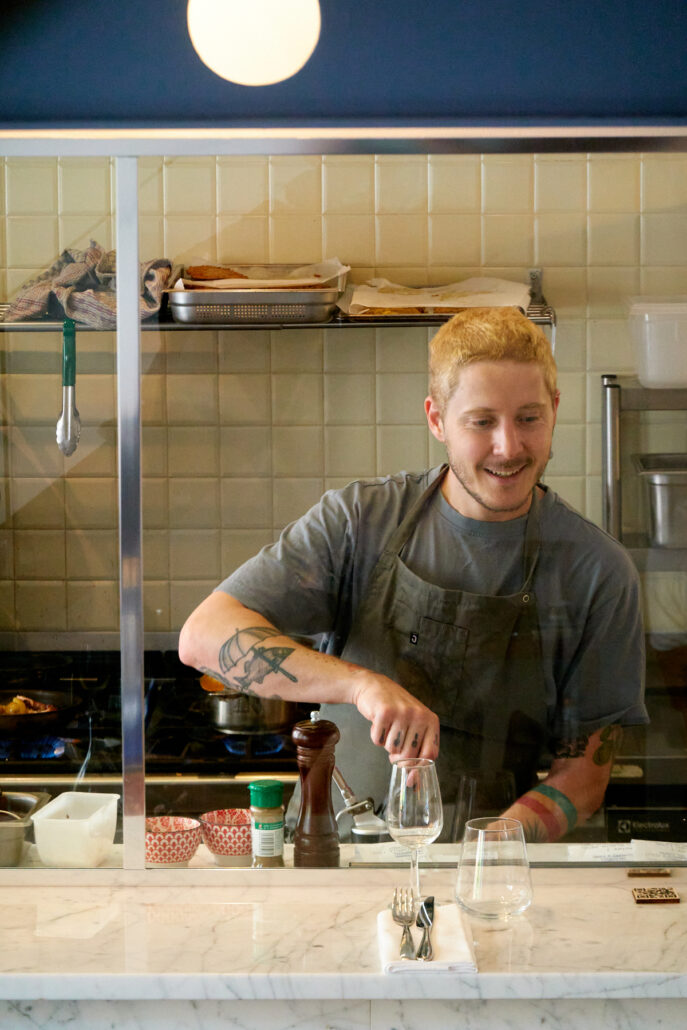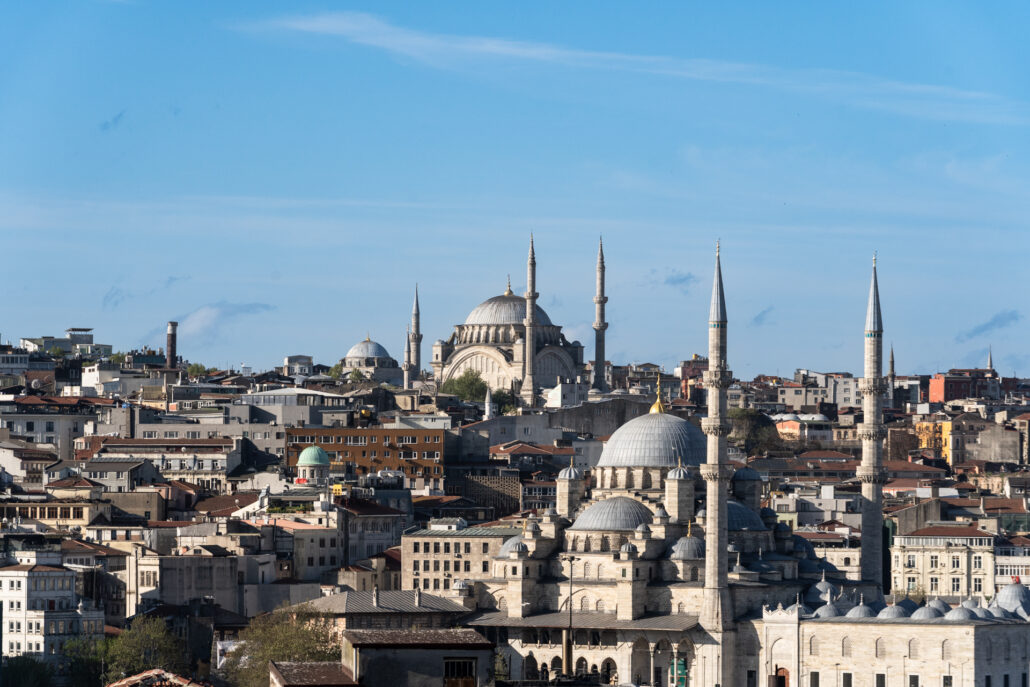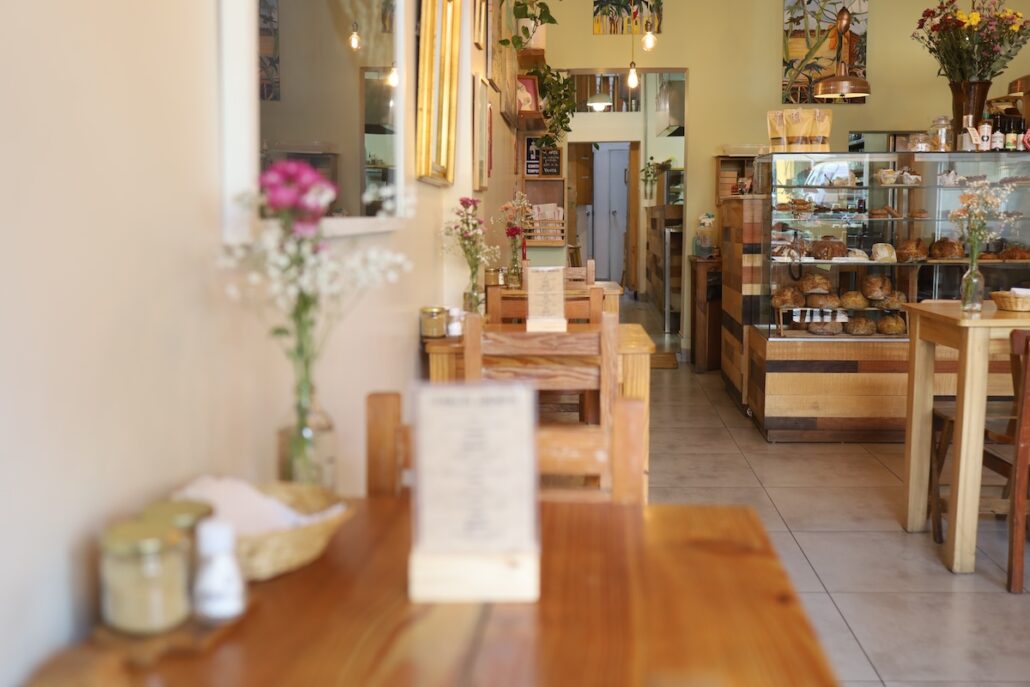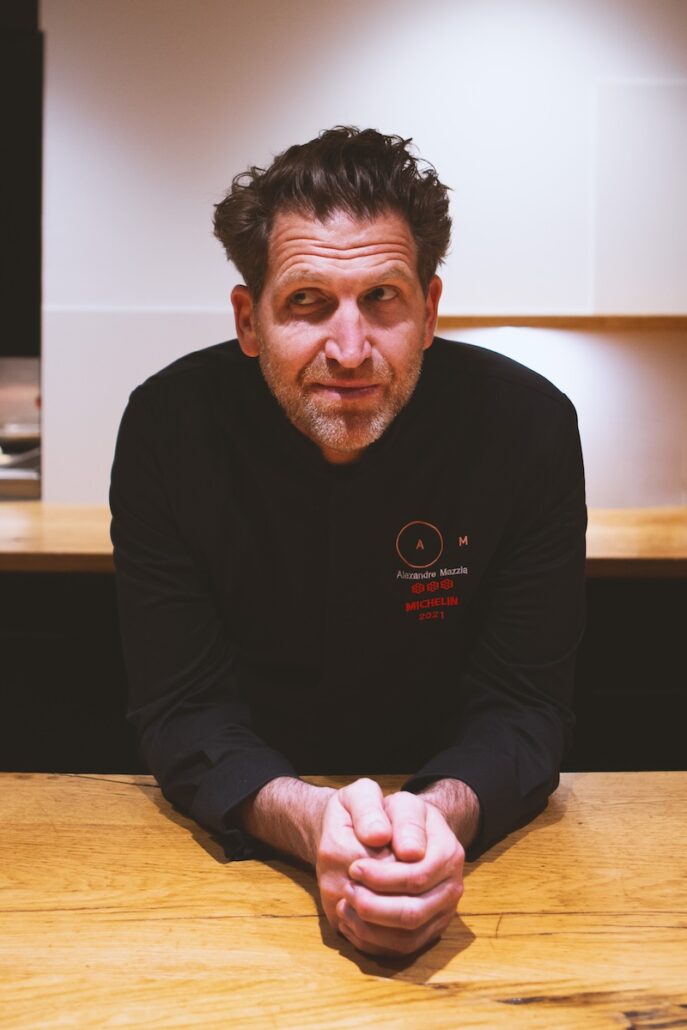This is the story of Facundo Castellani: a friend, a colleague, and a cuisine that I somehow feel like I’ve seen grow and develop. I shared a season with Facundo at Mirazur, Mauro Colagreco’s three Michelin-starred restaurant, in the summer of 2022, and since then I never stopped following his movements around the world. From the “Facu Sessions” – a series of alternative and dynamic collaborative dinners with venues in cities like Milan, Paris, and Buenos Aires – to his current project, which just celebrated its one-year anniversary a few months ago. It’s called Cucina Franca.
If you live in Milan, you have probably already heard of it: it’s on everyone’s mouth and rightly so. It’s a project with a clear vision, a project by young people who want to be young. They’ve already worked in Michelin-starred restaurants and done their fair share of endless hours in the kitchen or in front of house. Now the goal is to feel good and make others feel good, both internally as a team and externally for their customers who stop by for an evening in their establishment. It’s a bold project that does not seek shortcuts but chooses the sometimes longer path of honesty. The name itself actually comes from here. As a child, Facundo was known to friends as Faca, then Fracchia, and eventually Franca. This nickname stuck, so when the founders were thinking of a name for the restaurant, they ended up there (ed. Franca in Italian is frank – to be sincere).
“Franca is an honest place,” Facundo tells me, “a place where we treat everyone the same, whether you come for a ten-euro dish or the full menu. It’s a sincere place and it’s a place for everyone. So: Cucina Franca.”
It is an open and lively space, with a small open kitchen and an elegant and welcoming loft, creating a natural harmony between the environments. It is a place of sharing.



It’s been a year since the opening, but Facundo feels like eight have passed. “It’s been like a really fast race that was overwhelming, but with love and care,” Facundo chuckles, with that persistent kindness that has always accompanied him. The “we” here is important. Cucina Franca was founded by four partners: travel and professional adventures companion Gianluca Santamato, along with Jacopo Delle Grottaglie, Alberto Piccardo, and our protagonist Facundo, originally from Argentina but with a life already spent between Mexico, France, Spain, and Italy. The prequel is curious: before the current location, the group had found an opportunity to set something up in an ARCI club (a non-profit membership-based Italian cultural and social center). They worked on it arduously, but it didn’t work out and the project didn’t go through. But at that point the idea was there, written down black on white, and the dream had somehow touched reality. And so, “it seems like a joke,” Facundo says, when the opportunity for a property on via Friuli (Porta Romana area), strategically located just steps from Gianluca’s bar and office, and very close to Facundo’s home, suddenly presented itself. Within a week the group of four had bought, without investors behind them, putting all their savings into it, and a month later they were ready to open the doors. In the meantime, they had improvised themselves as painters, electricians, bricklayers, and everything in between.
Cucina Franca has no tablecloths nor pretenses. It’s not fine dining, yet precision is never compromised. The menu changes every three weeks — not out of showmanship, but out of respect.
From the beginning, Facundo decided to work with around seven suppliers (listed on their website), and it is they who dictate the pace of the menu, based on the availability of the goods. Facundo prefers not to talk too much about seasonality but rather about “common sense”: working with what is available is not only easier and more direct but also more fun. “When they tell me there are no more zucchinis but the eggplants have arrived, I change the menu. It’s not a poetic choice, it’s common sense.” This detail already emphasises the chef’s ability to adapt to the rhythm of nature, creating dishes full of character and flavour each time.
The dishes have a strong vegetable soul, with influences from all over the world. Facundo loves Italian cuisine but doesn’t hesitate to point out that it can sometimes be a bit too traditional – much like Basque cuisine, which he got to know up close during his years in Bilbao, first studying at the Basque Culinary Center and then working at the Nerua restaurant (where, by the way, he met Gianluca). He’s passionate about spices, handling them with balance and freedom, and never allowing them to become overpowering protagonists. His dishes combine a refined technique with inspirations gathered from his travels. Like that time in Morocco, where he returned with an obsession for Ras el Hanout – a spice blend that includes coriander, cumin, cardamom, cinnamon, black pepper, turmeric, and ginger – or for Harissa, a paste made from red peppers. The result? A caponata with Ras el Hanout, or an eggplant parmigiana enriched with harissa. Facundo presents these twists on traditionally Italian dishes, and fortunately, they are well received by the Milanese audience. More recently, Facundo has added a dish to the menu that always pays homage to Palestine, for example, using another Middle Eastern spice like za’atar.
“Cooking has an enormous power to showcase things, to tell a story. Everything we do is a political act, but at the end of the day, we are cooks, and the restaurant has to function. By creating a dish like this, we won’t change the world, we won’t solve anything, but at least we pick a side and stand by it.”






Cucina Franca looks at sustainability in all its dimensions – environmental, economic, and social – without making it a slogan.
At Cucina Franca, nothing goes to waste and they pay close attention to every expense: even an extra kilo of lemons can impact their budget. Recently, they have started collaborating with Recup, an NGO that rescues fruits and vegetables destined for disposal from Milanese markets. Through this partnership, they give social value back to food that has lost its economic worth. In the restaurant, they introduced the “Recup dish,” and the proceeds from it go back to the project.
Accessibility has always been important for Facundo. When he was working in Michelin-starred restaurants, he struggled with the fact that his friends or family couldn’t access that level of service. “It seemed like a contradiction: cooking well in places where my people couldn’t eat.” Now, in his restaurant, he decides to do things differently. At Cucina Franca, they have a more accessible street food section (such as empanadas or tacos priced at €8-12), a menu à la carte focused on sharing dishes, or a tasting menu – not fine dining style but structured as a selection of six dishes to be able to try more things – for €40. “I can’t define them as low prices, but at least they are not inflated and there are different options.”
Facundo today is no longer the chef I met a few years ago in Menton. He is so much more. He himself says this when he tells me that he has learned what it means to be an entrepreneur. Today he is a driving force who, with love and kindness, has the potential, in his own small way and without extravagant goals, to truly make a difference: from how an ingredient is perceived, to the taste of a dish, to the work-life balance of an employee. “Cooking is natural for me. But learning to manage people, to understand responsibility, to make everything work… is difficult and fascinating. Because when it works, you feel that the restaurant is functioning even when you’re not there. It’s alive.” At Cucina Franca, they have grown from the initial 4 to a team of 12 in a year; everyone receives a fair salary, two days off per week, and sustainable working hours. “It’s tough, but beautiful. We want people to feel good here. It’s rare, but possible.”
In June, they celebrated their first year with a big party: 500 people, a DJ set, an open kitchen. “There were friends, family, customers. It was all we wanted,” Facundo recounts. And now? They are growing, but with prudence and foresight. There’s a first catering this summer, the first requests for pop-ups where Franca’s cuisine steps outside, travels, and tells its story elsewhere, and the doors are open to welcome others, always with the same spirit that distinguishes them. In the meantime, the present is here: with attention and love, with two zucchinis and a flower (and certainly some spices), a great dish can be born.








